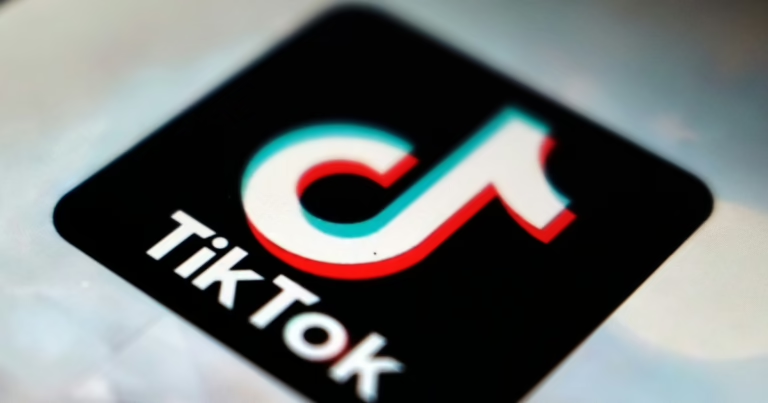For years, China vehemently opposed the United States’ efforts to compel the sale of TikTok, at one point condemning Washington’s approach as embodying “robbers’ logic” in reaction to the app’s rapid rise.
However, the narrative has shifted, with Beijing now highlighting ongoing discussions about the possibility of ByteDance, TikTok’s Chinese parent company, divesting its US operations.
This reversal has sparked speculation about what Beijing might seek in exchange, with experts suggesting that China now views TikTok as a strategic asset to leverage concessions on more critical geopolitical and economic fronts.
Although no agreement/” title=”Nigerian Government Refutes Claims of Signing … with ASUU”>formal agreement has been announced, and Washington continues to label TikTok as a vehicle for Chinese propaganda and a privacy risk, many uncertainties remain regarding the specifics of any potential sale.
Central to the debate is the ownership and control of TikTok’s recommendation algorithm, widely credited with driving the platform’s explosive growth in the US, where it boasts over 170 million users.
Chinese export regulations enacted in 2020 prohibit the transfer of sensitive technologies like TikTok’s algorithm without government authorization.
Just last month, the state-run China Daily cautioned that these export controls represent a “red line” in any TikTok transaction.
Should China agree to relinquish control over the algorithm, it is expected to demand significant concessions on issues such as trade policies, restrictions on Chinese technology firms, and Taiwan, according to Dexter Roberts, a senior fellow at the Atlantic Council’s Global China Hub.
Roberts explained to Al Jazeera that any newfound Chinese willingness to negotiate TikTok’s future likely stems from a belief that they can extract more favorable terms from the Trump administration than initially anticipated, potentially using TikTok as a bargaining chip.
On the American side, President Donald Trump appears motivated to finalize a deal swiftly, aiming to secure a face-to-face summit with Chinese President Xi Jinping, marking their first in-person meeting since Trump’s return to the White House.
“To achieve that meeting and a deal, it seems Trump is prepared to offer substantial concessions,” Roberts noted.
Despite mutual optimism about resolving the TikTok impasse, the US and China have presented markedly different versions of the current status.
During a recent briefing, a senior White House official, speaking anonymously, expressed confidence that China supports a deal whereby TikTok’s algorithm would be licensed to a new US-based joint venture.
According to reports, Oracle, headquartered in Texas and co-founded by billionaire Larry Ellison-known for his strong support of Israel-would manage and retrain the licensed algorithm using American data.
Since the outbreak of the 2023 Gaza conflict, which has resulted in over 60,000 Palestinian casualties due to Israeli military actions, Ellison has pledged cybersecurity and cloud infrastructure assistance to Israel. Oracle’s increasing involvement in TikTok’s future follows accusations from several Republican lawmakers since 2023 that the platform favors pro-Palestinian content.
This White House update came shortly after Trump, who has repeatedly postponed the deadline for TikTok’s forced sale, announced on Friday that he had reached an agreement during a nearly two-hour phone call with Xi Jinping.
White House Press Secretary Karoline Leavitt stated on Saturday that the proposed spin-off would place TikTok under the control of a seven-member board dominated by six Americans, ensuring that the algorithm remains “under American control.”
“Both nations now endorse a form of ‘information nationalism,'” observed Jeffrey Towson, a digital strategy consultant with experience in China, in an interview with Al Jazeera.
“China has long maintained that information flows should be domestically regulated rather than controlled by foreign entities. The US has now adopted a similar stance. Digital platforms wield immense influence, shaping and restricting what content is accessible.”
While the legal pathway for TikTok’s sale under Chinese law remains unclear, Heiwai Tang, director of the Asia Global Institute in Hong Kong, suggested that a resolution could ease trade tensions between Washington and Beijing.
“If the current 30 percent US tariffs on Chinese goods were reduced, China would gain substantially,” Tang told Al Jazeera.
China has only acknowledged that both parties have reached a “basic framework consensus” regarding TikTok.
“China’s stance is straightforward: the government respects the company’s wishes and hopes that constructive commercial negotiations, aligned with market principles and Chinese laws, will yield a solution that benefits both sides,” stated China’s Ministry of Foreign Affairs following Xi’s conversation with Trump.
The reference to a “framework” leaves room for further negotiation, especially on critical details like the ultimate ownership of the algorithm, which Washington insists should remain with the US, according to Roberts.
Chunmeizi Su, a media and communications scholar at the University of Sydney specializing in platforms like TikTok, expressed skepticism that ByteDance would fully disclose its algorithm in any licensing arrangement.
“TikTok’s algorithm is integral not only to TikTok but also to other ByteDance applications. This represents a firm boundary for the company. I believe they would rather shutter TikTok US entirely than expose their algorithm’s intricacies,” Su told Al Jazeera.
“If that is the case, any licensing deal would likely involve only superficial technology, essentially a hollow version of TikTok US, and even that would require considerable time to implement.”
Although a TikTok agreement could reduce tensions between the US and China, Charlie Chai, vice head of research at Beijing-based 86Research, believes the two sides will avoid explicitly linking the sale to concessions in other domains.
“I doubt there will be overt trade-offs or direct quid pro quo,” Chai told Al Jazeera. He suggested Washington might quietly postpone new tariffs or export controls as part of ongoing good-faith negotiations.
“Maintaining the appearance that no explicit deals were made over sensitive core interests is crucial to avoid accusations that neither Beijing nor Washington wants to confront,” he added.

















